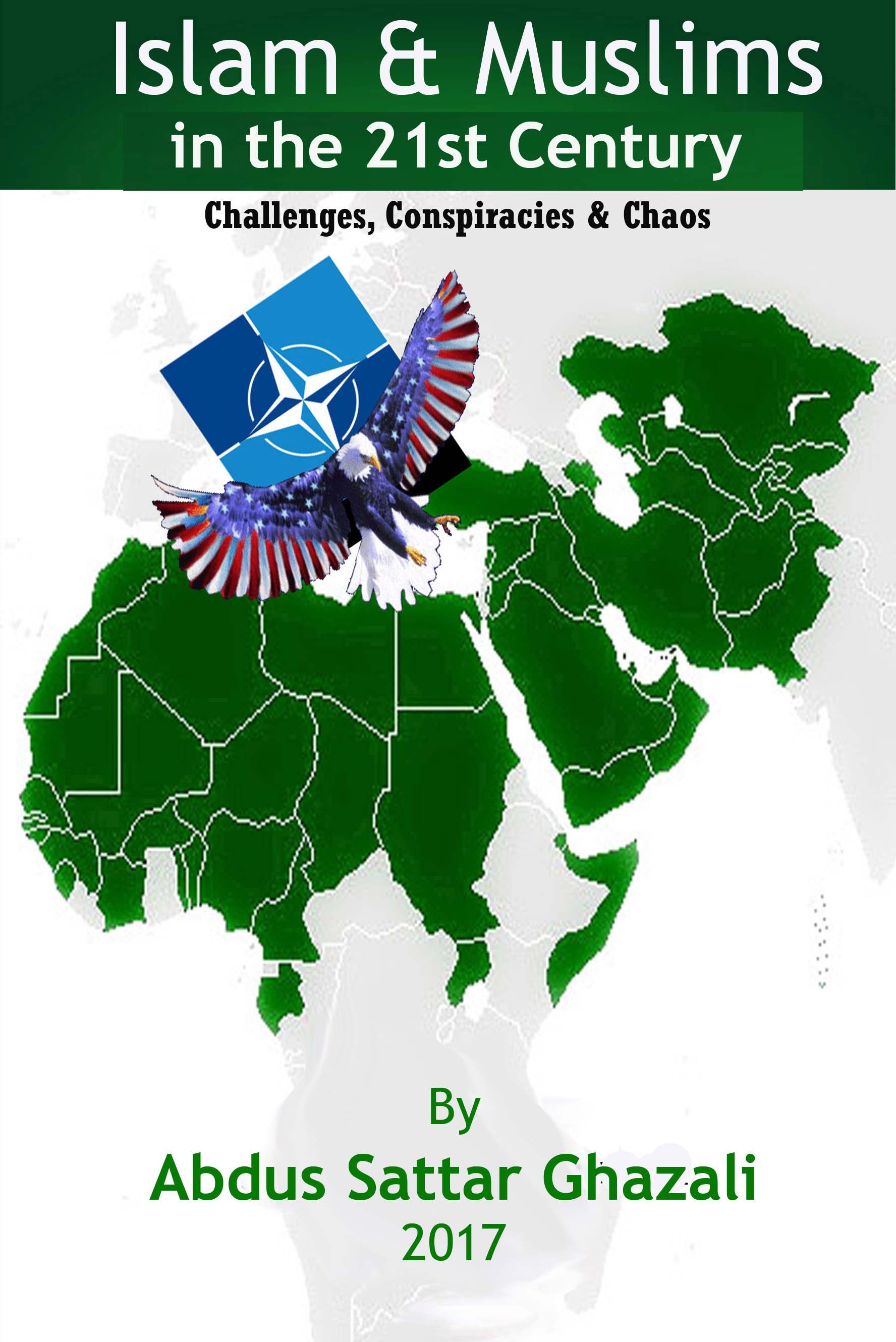January 4, 2020
Senators concerned over implications of
General Soleimani’s assassination for Pakistan
By Abdus Sattar Ghazali
Pakistani senators have expressed concern over the fall out of tension between the US and neighboring Iran in the aftermath of killing of General Qasem Soleimani.
Senator Raza Rabbani told the Senate Friday that the America’s killing of Soleimani has given rise to new tensions in the region. He said the worsening US-Iran relationship could have implications for Pakistan's national security.
Senator Sherry Rehman said the Iranian general's killing could trigger a "serious crisis-like situation" in the Middle East.
Leader of the House in the Senate Shibli Faraz told the senate that the government is "monitoring" the US-Iran tensions while also assessing the international reaction to the developments.
On Friday, US Secretary of State Mike Pompeo reached out to Army Chief General Qamar Bajwa in the aftermath of the assassination of Iranian General Soleimani.
“Pakistan’s Chief of Staff General Bajwa and I spoke today [Friday] about US defensive action to kill Qasem Soleimani,” said Pompeo on Twitter, adding the “Iran regime’s actions in the region are destabilizing and our resolve in protecting American interests, personnel, facilities, and partners will not waver”.
On its part, Pakistan army’s media wing tweeted: “COAS received telephone call from US Secretary of State Mike Pompeo. Regional situation including possible implications of recent escalation in Middle East was discussed,” the tweet said adding: “COAS emphasized need for maximum restraint and constructive engagement by all concerned to de-escalate the situation in broader interest of peace and stability.”
Pakistan Foreign Office also expressed ‘deep concern’ over the escalating tensions between Iran and the United States following the assassination of General Soleimani. “Pakistan has viewed with deep concern the recent developments in the Middle East, which seriously threaten peace and stability in the region,” the Foreign Office said in a statement. “Respect for sovereignty and territorial integrity are the fundamental principles of the UN Charter, which should be adhered to. It is also important to avoid unilateral actions and use of force,” it said.
The United Arab Emirates & Saudi Arabia
The United Arab Emirates, an ally of the US and Saudi Arabia in their rivalry against Tehran, was the first Arabian Gulf nation to react on Soleimani’s assassination.
The UAE Minister of State for Foreign Affairs Anwar Gargash called for “wisdom and moderation” rather than “confrontation and escalation.” “Rational engagement requires a calm and unemotional approach,” he said.
“This is a huge escalation of an already unstable situation in the Middle East, the region cannot afford more tension,” said Jaber Al Lamki, a media official with the UAE government.
“Those countries must be feeling very concerned about the potential fallout and the risk to their societies and their economies,” said Vakil.
Saudi Arabia's Minister of Foreign Affair Adel Al-Jubair tweeted early Satruday: "The Kingdom’s statement regarding the events in Iraq stresses the Kingdom’s view of the importance of de-escalation to save the countries of the region and their people from the risks of any escalation."
US Secretary of State Mike Pompeo spoke on the phone with Saudi Crown Prince Mohammed bin Salman about the airstrikes at Baghdad airport killing General Soleimani. They discussed measures for reducing tension in the region during the call, Saudi Press Agency (SPA) reported.
“Both Abu Dhabi and Riyadh have watched the developments in Iraq over the weekend with great concern, fearing that Iran might respond against US forces on their territory,” said Andreas Krieg of King’s College London.
Iran 'will fall into the hands of the most militant and hardline elements'
Euronews said according to several analysts, Iran is interpreting the killing of its top general as a declaration of war.
Director of the Iran Project at the International Crisis Group Ali Vaez told Euronews: "The consequences of General Soleimani's assassination at this stage are uncertain but what is certain is that Iran is going to take retaliatory measures of its own either in a proportionate or disproportionate manner, but in either case, the risks of escalation and stumbling into a full-fledged war are probably now higher than at any point in the past few decades."
Vaez predicts that the US attack will likely cause the Iranian parliament "to fall into the hands of the most militant and hardline elements within the Iranian system. This has also the potential of completely changing the focus of domestic anger against political stagnation and economic stagnation to national security questions and help the Iranian system to rally the population around the flag."
"In the same way that the Iran-Iraq war basically helped consolidate the Islamic Republic, I think this measure is likely to help Iran change the subject domestically, and militarize and securitize the domestic sphere around the national security threat posed by the United States," Vaez concludes.
Vaez further said that "Iran is a very powerful country. It has a network of proxies and partners around the region. It can go after US and US allies' foreign interests all the way from Yemen to Saudi Arabia, to the UAE, to Iraq, to Lebanon, to Syria and Afghanistan."
He added that an all-out war between the US and Iran "would make the conflict in Afghanistan and Iraq look like a walk in the park." Vaez also reckons that the US would likely be alone if it were to go to war with Iran.
George Packer of The Atlantic wrote under the title: Killing Soleimani was worse than a crime. It was a blunder: Killing Soleimani will only lead to more violence, perhaps much more. The victims will likely include Americans in the region and vulnerable civilians in Iran, including those who long for a better life than their rulers will allow them but have had to unite with their hard-line tormentors against a foreign aggressor. Neither Iran nor the United States knows how to read the other’s intentions—each is prone to underestimation—leaving the two countries to lash out in the dark.
Veteran Today Managing Editor Jim W. Dean wrote: Trump may have just sentenced a number of American military personnel to death. If he can order hits like this to “protect” US personnel, then others are given permission to kill US personnel using the same reasoning. With the high technology that many countries have these days, even finding flag officers is not a huge hurdle to overcome….. I can just imagine all the assassination plans that are beginning to be made tonight. As to why now, an operation that probably had months of planning, was it timed to kick off the new year with Trump’s impeachment trial looming, his signing the China trade deal, and his State of the Union address, all to jump start his reelection campaign? Would the Pentagon allow itself to be used like that, and by Trump no less?
Nuclear Option
Ilan Goldenberg, Director of the Middle East Security Program at the Center for a New American Security, wrote in the Foreign Affairs about the possible Iranian response. At a minimum, Iran will take a significant step toward enriching weapons-grade uranium. Goldenberg said:
“We should also expect Iran to significantly accelerate its nuclear program. Since the Trump administration left the Iran nuclear agreement in May 2018, Iran has been quite restrained in its nuclear response. After a year of staying in the deal, in May 2019, Iran began to incrementally violate the agreement by taking small steps every 60 days. The next 60-day window ends next week, and it is hard to imagine restraint in the wake of Soleimani’s death. At a minimum, Iran will restart enriching uranium to 19.75 percent, a significant step toward weapons-grade uranium. It has recently threatened to go even further by walking away from the Nuclear Nonproliferation Treaty or kicking out inspectors. These would be profoundly dangerous moves, and until this week most analysts believed Tehran was unlikely to actually make them. Now they may well be on the table.”
Interestingly, a political analyst on a Pakistani TV channel commented that assassination of Iranian General might not have happened if Iran had nuclear weapons. He said the US is not attacking North Korea because it has nuclear weapons.
Tellingly, the lynching of the Libyan leader after he had renounced nuclear weapons and the hanging of the Iraqi president have been cited by the North Korean media as the rationale for their own country's determination not to abandon its nuclear program. Russian Senator Vladimir Dzhabarov said in Pyongyang last year that the matter of denuclearization probably will not stand after all because Kim Jong Un remembers all too well what happened with Libyan leader Muammar Gaddafi, with President Saddam Hussein of Iraq and other heads of state.

The Journal of America Team:
Editor in chief:
Abdus Sattar Ghazali
Senior Editor:
Prof. Arthur Scott
Special Correspondent
Maryam Turab
Your donation
is tax deductable.



